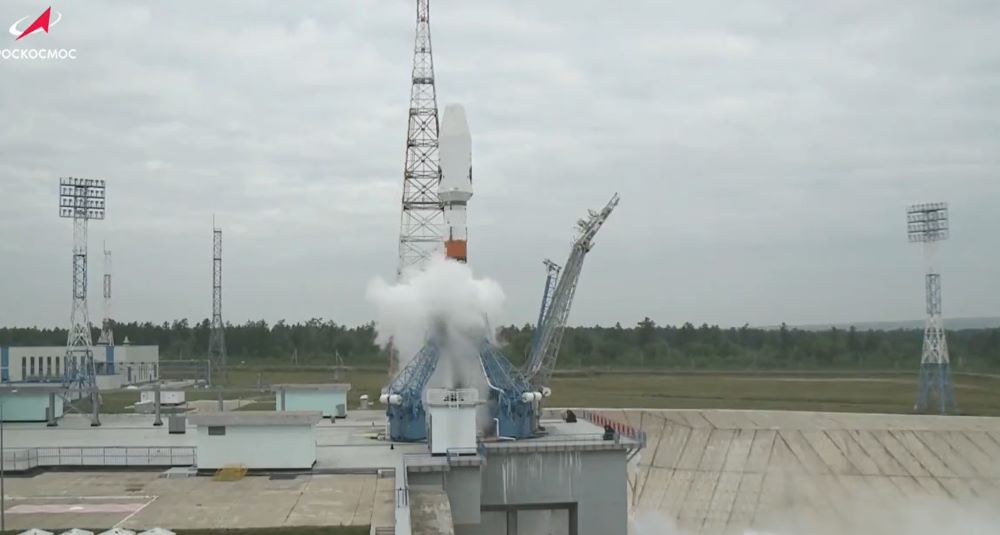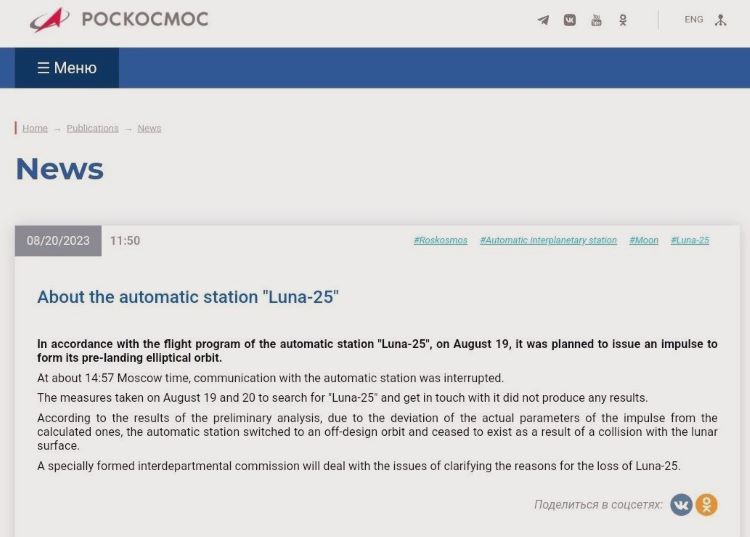 Luna-25
Luna-25 Luna-25: Russia's first lunar mission in four decades crashes into the Moon
Moscow: Russia's lunar exploration mission, Luna-25, which marked the country's return to the Moon after over four decades, has crashed during pre-landing maneuvers, the Russian space agency Roscosmos said on Sunday.
The crash of the space craft Luna-25 occurred in the loss of communication with the Luna-25 probe at 2:57 pm (1157 GMT) on Saturday.
The initial findings indicate that the lander "has ceased to exist following a collision with the Moon's surface," Roscosmos said.
"Measures taken on August 19 and 20 to locate the craft and make contact with it were unsuccessful."

Following Luna-25’s crash during pre-landing maneuvers, Roscosmos said that an investigation would be initiated to determine the underlying causes of the incident.
The agency did not provide specific details about the technical issues that may have led to the crash.
The Luna-25 mission was aimed at continuing the historic legacy of the Soviet-era Luna program and acting as a symbol of Russia's revitalized dedication to lunar exploration.
The mission carried significant importance for Russia's ambition to venture into lunar exploration autonomously, especially as its connections with Western space collaborations have been diminishing, prompting the nation to seek self-reliance in its lunar endeavours.
The launch took place four weeks after India sent up its Chandrayaan-3 lunar lander, which is scheduled to reach the Moon's south pole on August 23.
Congratulations, Roscosmos on the successful launch of Luna-25 💐
— ISRO (@isro) August 11, 2023
Wonderful to have another meeting point in our space journeys
Wishes for
🇮🇳Chandrayaan-3 &
🇷🇺Luna-25
missions to achieve their goals.
Roscosmos had outlined the timeline for the Lune-25 spacecraft, adding that the two missions, Luna-25 and Chandrayaan-3, will not collide as they have planned different landing areas.
The Luna-25 probe, weighing 800 kilograms, had the monumental task of achieving a soft touchdown on the lunar south pole, which would have been an unprecedented achievement in the history of space exploration.
Russia's previous attempt to land on a celestial body dates back to 1989 when the Soviet Union's Phobos 2 probe aimed to explore the moons of Mars.
Unfortunately, this mission faced failure due to an onboard computer malfunction.
Acknowledging the challenges inherent in the Luna-25 mission, Yuri Borisov, the head of Roscosmos, had described it as a "risky" endeavor.
He candidly communicated to President Vladimir Putin in June that the likelihood of success was estimated at approximately 70 percent.
Support Our Journalism
We cannot do without you.. your contribution supports unbiased journalism
IBNS is not driven by any ism- not wokeism, not racism, not skewed secularism, not hyper right-wing or left liberal ideals, nor by any hardline religious beliefs or hyper nationalism. We want to serve you good old objective news, as they are. We do not judge or preach. We let people decide for themselves. We only try to present factual and well-sourced news.







